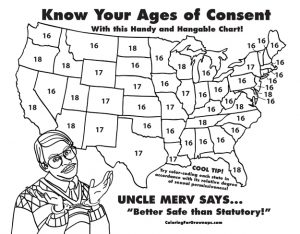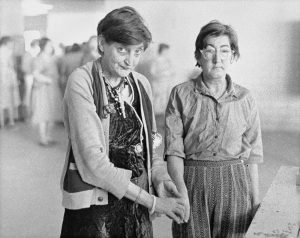 The introduction of these useless facts makes me believe the author included these to tell us that the main characters are not exactly right in the head. The inclusion of the camera in the room made the setting seem like some kind of asylum for the insane and not just a typical hospital in which our main character is in. However, you do realize that the characters themselves are not quite right. For example, Hempel writes of how the nurse is referred to as the Best Friend instead of her real surname. This indicates a mental flaw in the main character’s friend’s brain. There are many strange snippets here and there that the writer puts to show us the oddness of the characters. Such as when the friend of the narrator loops a cord around her neck, as if she is trying to commit suicide. Some of the words almost feel random and nonsensical, which I think is Hempel’s way of delivering a not-as-sane set of characters for the reader to know. Further on, we read more strange nicknames the two patients give to their doctors. These nicknames are what they believe describes them as a whole, and it feels like the nicknames suggest a sort of loose grasp on reality. The narrator and her friend only directly call the nurses and doctors by the singular trait they see on them. The last thing I noticed about Hempel’s story is that each new section after a line break is something akin to a random thought the narrator delivers to us. This short story is rather a tough read because we are introduced to the mind of a mental patient and Hempel shows it through the nicknames, the paragraphs of words that doesn’t make sense. Also, of course, the camera that is installed within the two characters’ room which portrays a less than ordinary hospital.
The introduction of these useless facts makes me believe the author included these to tell us that the main characters are not exactly right in the head. The inclusion of the camera in the room made the setting seem like some kind of asylum for the insane and not just a typical hospital in which our main character is in. However, you do realize that the characters themselves are not quite right. For example, Hempel writes of how the nurse is referred to as the Best Friend instead of her real surname. This indicates a mental flaw in the main character’s friend’s brain. There are many strange snippets here and there that the writer puts to show us the oddness of the characters. Such as when the friend of the narrator loops a cord around her neck, as if she is trying to commit suicide. Some of the words almost feel random and nonsensical, which I think is Hempel’s way of delivering a not-as-sane set of characters for the reader to know. Further on, we read more strange nicknames the two patients give to their doctors. These nicknames are what they believe describes them as a whole, and it feels like the nicknames suggest a sort of loose grasp on reality. The narrator and her friend only directly call the nurses and doctors by the singular trait they see on them. The last thing I noticed about Hempel’s story is that each new section after a line break is something akin to a random thought the narrator delivers to us. This short story is rather a tough read because we are introduced to the mind of a mental patient and Hempel shows it through the nicknames, the paragraphs of words that doesn’t make sense. Also, of course, the camera that is installed within the two characters’ room which portrays a less than ordinary hospital.
The Cemetery Where Al Johnson Is Buried
Sep 21st, 2016 by pang17
Exercise 3
Sep 15th, 2016 by JGB
Write a love story that includes a scene prompted by one of these images. The story — double-spaced, in 12-pt. Times or Times New Roman font — is due Tuesday, September 20, and should be placed in the Exercise 3 folder on Google Drive. The document should be saved as a Word document and should be titled YourName.ENGL263.Ex3.docx.


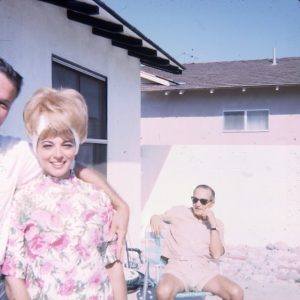
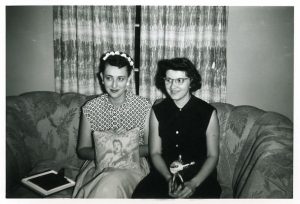
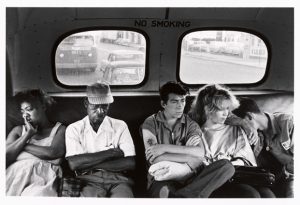
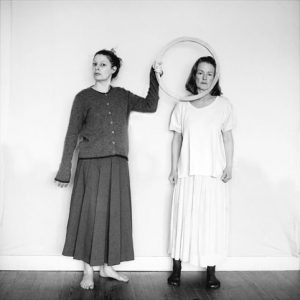
Brown’s “Postman” follows Henry, an adolescent boy forced to work at his aunt and uncle’s horse camp during the summer. Following Henry throughout the story is interesting. While the story is not written in first person, Brown perfectly places the reader in the head of a boy who moving out of his “ew girls are gross” stage and into the awkward stage of awaking sexually. Henry is portrayed as distant and sometimes rough. He doesn’t involve himself with the girls, but he watches from a distance, and he especially watches the fair haired Nicola.
Henry’s relationship with Nicola is interesting. While he is still standoffish when it comes to interacting with her, he pays more close attention to her. The tone of “Postman” is always sort of dreary and realistic, but when Henry talks or even thinks about Nicola, it begins to take on this mystical feeling. The only time that Henry’s distant attitude changes, is when he interacts with the girl
The scene with the storm is a good example of how tone changes. Henry is always very controlled, but like the wild storm, he loses his cool when Nicola and her pony wander off. The tone changes and so does Henry. It’s a beautiful way to compare his changing emotions to the storm. It really gives a picture as to how Henry is feeling and how he is changing.
Thoughts on “Postman”
Sep 15th, 2016 by odonnell18
But still he sought her out, he knew he did, catching sight of her and her wild hair like a freakish white crown and waiting to see what she would do next.
While entering into the deteriorating caravan, Henry’s Aunt loses her footing; “but Henry’s hands had already flown up, ready to catch her,” (pg. 181). Henry is already established as a sort of guardian or “protector,” in the first few sentences, but I truthfully didn’t catch this until a second read. There is something incredibly subtle about the entire story — in craft, in description, and in the development of the relationship between Henry and Nicola. The language used appears to be consistently hinting at a sadness, even in the description of the food on the table. From the “sunken tomatoes,” to the “butter dish with its ruined lump,” and the “quarter inch of cold tea,” (pg. 187), everything appears to be somewhat melancholy. Nostalgia is another element that is present in the story from the opening — a feeling of something lost or missing. There are a wide variety of phrases that hint at memories of the past and of better times. Feeding off of this sadness are the superficial relationships between a majority of the characters; Henry and the girl boarders, Henry’s aunt and uncle, and the girl boarders in relation to each other. There is a certain distance between each of the characters with no true affection, until we see the developing relationship between Henry and Nicola. I became vividly aware that a love story does not have to openly express the words “I love you,” or even exhibit the sentiments of love. The reader truly only needs the perspective and thoughts of one character. But I wasn’t initially sure if this love would be that of a brother-sister relationship, or more of a budding romance. Brown makes this distinction ambiguous and leaves the reader to make his or her own assumptions. Henry isn’t particularly fond of the girls to begin with, steering me away from the belief that he might come to like one of them. In fact, I was sort of afraid something would happen involving the uncle. “He seemed to have grown unkempt or seedy, as though he harbored a terrible secret about himself…” (pg. 187). But Henry begins to fall for Nicola, her silvery hair, and her tearful personality. He experiences this failed heroism, the weather and the spooked horse out of his control, and realizes what he could have lost. The hazy nature of the story made the ending somewhat surprising. I wouldn’t have expected Henry to muck up the courage and I also wasn’t prepared for my heart to begin to melt as the two kissed with such an innocence that I have taken for granted. So genuine and so true, and such a sweet ending to an otherwise heavy-hearted story.
The Thing About Growing Up
Sep 14th, 2016 by pang17
The story “Postman” is about a boy and his daily life helping at a pony farm owned by his uncle and aunt. The story is also about Henry’s developing sexuality as he shares his days with the girl riders of the farm. Brown explores the theme of blossoming sexuality by utilizing the ten-year-old character, Nicola. Nicola, with her crown of blonde hair, her bird-like lips (described in such a way that it doesn’t sound awkward at all), and her small hands, are all examples of a subtle eroticism that shows us that Henry is developing from a child into an adolescent. There is also the ending, the titular scene in which the group plays a game called postman. In the ending, Brown suggests that the relationship which Henry and Nicola have might not stay strictly friendly, but might instead change into romance as both characters grow.
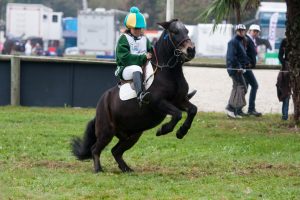
Interspersed in the story are the vague hints of Henry’s growth, such as his enjoyment of accidentally brushing his hands against girls’ thighs as he helps them with their pony and his general, but secret, pleasure in the physical contact he can make with the girls. There is also the parts where Henry’s aunt mentions about Henry being the center of the girls’ attention, another suggestion to this story’s theme of coming-of-age. However, the principle relationship of Nicola and Henry is the crux of the story, one in which Henry seems to know her so well that he can detect her lie right away. By showing this, we can establish that Henry and Nicola have already made an emotional connection to one another that hints at a deep relationship with the other. Perhaps, Brown may be saying they are soulmates, and thus Henry can so quickly see through Nicola’s facade.
Tags: carrie brown, coming of age, the postman
Thoughts on “Burning Bright”
Sep 14th, 2016 by gullicksen18
In the short story “Burning Bright” Ron Rash is very effective at describing the characters and the events of the story by showing instead of telling. When he does make direct statements, he is sure to then prove the statements later on in the story. This is very effective because it immerses the reader in the story and doesn’t break them from the story with the feeling of being told what to think and being preached at.
There are many details casually placed in the story that provide facts about the story without directly stating them. On page 108, Marcie is thinking about Carl, wondering when he will be home and she thinks about a wedding gift she gave him. This detail quickly tells the reader that Carl is her husband instead of a son or a father or another male figure she might be waiting for that lives in her house. The small descriptions of the setting also show instead of telling directly where it is, although North Carolina is mentioned specifically later on, details such as the “red dust” and the crops that are being grown (like tobacco) help orient the reader in a specific place through showing instead of directly telling. Instead of directly saying Marcie’s age, the author chooses to say “foolish, maybe, for a woman of almost sixty.” With this sentence, Rash is able to subtly tell the reader the age of the woman without having to pause the momentum of the story in order to do so.
In the same manner, the mention of the girls, her daughters, by the grocer, was an equally subtle way to let the reader know that Marcie has children and that they are having problems. This is later proven in the story when Marcie explains why her daughters aren’t talking to her and it uses specific scenes and dialogues to back it up again. It’s mentioned in passing and then brought up again. This is effective because the reader has time to see it in a real life situation, digest it, think about it, and then find out the rest of the information.
Another example of presenting information and then proving it later on is on page 113 when Marcie says that “there were days when Carl spoke no more than a handful of words” and then, later, on the same page, Barbara, the grocer, says that a bartender tries to flirt with Carl and he doesn’t say anything back to her. The reader gets to feel like they are given this piece of information about Carl and then get proof from another character that the information the narrator has given is true.
Postman and Character Development
Sep 13th, 2016 by young18
Brown’s “Postman” contains a multitude of intimate details that help show the evolving relationship between the girls at the pony camp and Henry. Initially Henry laments at having to help his aunt and uncle at the camp. His first plan was work at an auto shop “retooling motorcycles” but the owner, having little money to spare, turns him down(189). Henry has a clear distaste for what his “aunt and uncle’s life has become” when they are pushed towards opening a pony camp at Stoke Charity as well as the girls themselves. What is very effective about this short story is the small painstaking details about how he sees them that appear continuously throughout. Such as “the way their mouths worked” and “letting them go roughly as though they were hot to the touch”. The power structure between himself and the girl campers I interpreted as a difference among the classes as well as him feeling used and literally and figuratively stepped on. This later transforms to Henry enjoying the power of being able to rescue them and “exploiting their dependence on him”(204). It feels to happen slowly due to the pace of the story although in reality much less than a month has passed.
Many of these details set the reader firmly in place but many also help develop the love story between Nicola and Henry. They are the center of the story, yes but, what is also effective is the relationships and alliances between the girls is also drawn out over the story. These relationships shift while their at play(riding) and everyday activities. The somewhat estranged relationship between his aunt, uncle and himself is also shown. It is hinted at earlier when the aunt asked if he had bought any books and much later when the uncle makes a poor attempt to joke about his lack of resemblance to his parents. It is not brought up again. I got the sense Henry was not that comfortable with his village life. His discomfort with “the burning of a wooden effigy of a traitor to the king at Guy Fawkes Day”(197). Henry is painted as a calm, observant but somewhat malcontented and I think it fit well with his age. I felt the way in which the other female and male character’s were written fit well with their ages as well.
“The Trip Back” and the importance of opening lines
Sep 8th, 2016 by odonnell18
Disclaimer: I did not just notice the first line because it was underlined.
Disclaimer 2: Really not sure what to do with/think about this story.
Maybe it is a cliché to put so much pressure on an opening line, and maybe at this point in my “writing career” I need to know if it really is as important as I’ve always been told. Maybe it’s not. This story pushes me to believe the latter, as I’m not really sure how the opening line ties into the story as a whole. I believe the following lines about poets are equally interesting: “It is the poet who is supposed to see things so clearly and remember. Perhaps it is only the poets who can die well.” This makes sense to me when I connect the beginning of the story to the end, where the narrator is reflecting on the fact that he can’t really create his wife’s image in his mind despite all the time they have spent together. I understand this connection, but as neither the narrator nor the grandfather can remember, I’m not sure why the author is making the poet connection. There is no one in the story to draw that line to.
What Makes A Scumbag?
Sep 8th, 2016 by brewer18
Jack from Elizabeth Tallent’s “No One’s A Mystery” is, without a doubt, a scumbag. He is a married man who is in a romantic relationship with a young woman who has just turned eighteen. Jack’s dialogue seems to suggest that Jack and the narrator are sexually active, which, depending on the setting, means that Jack might be a statutory rapist. Similarly, some of Jack’s other dialogue suggest that he has had children with his wife but that they are now grown and older than the narrator. However, Jack seems to know that he is a scumbag. He doesn’t hide his marriage from his lover and never really makes excuses for adultery, and although he does seem to be unhappy with his wife, he doesn’t seem to have any serious plans to divorce her. He also has a rather practical view on his relationship with the narrator and seems to know that it won’t last and she’ll eventually move on. This is in direct contrast with the narrator who seems to be completely in love with Jack and has already planned out their life together, which includes getting married and having two children within three years. She also knows he is married and doesn’t seem to have a problem with it, though she does seem to believe he will divorce his wife, so that raises the question of what kind of person the narrator is. 